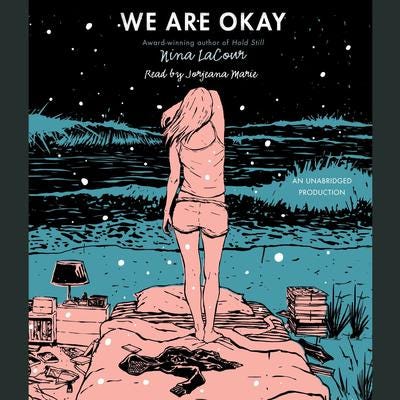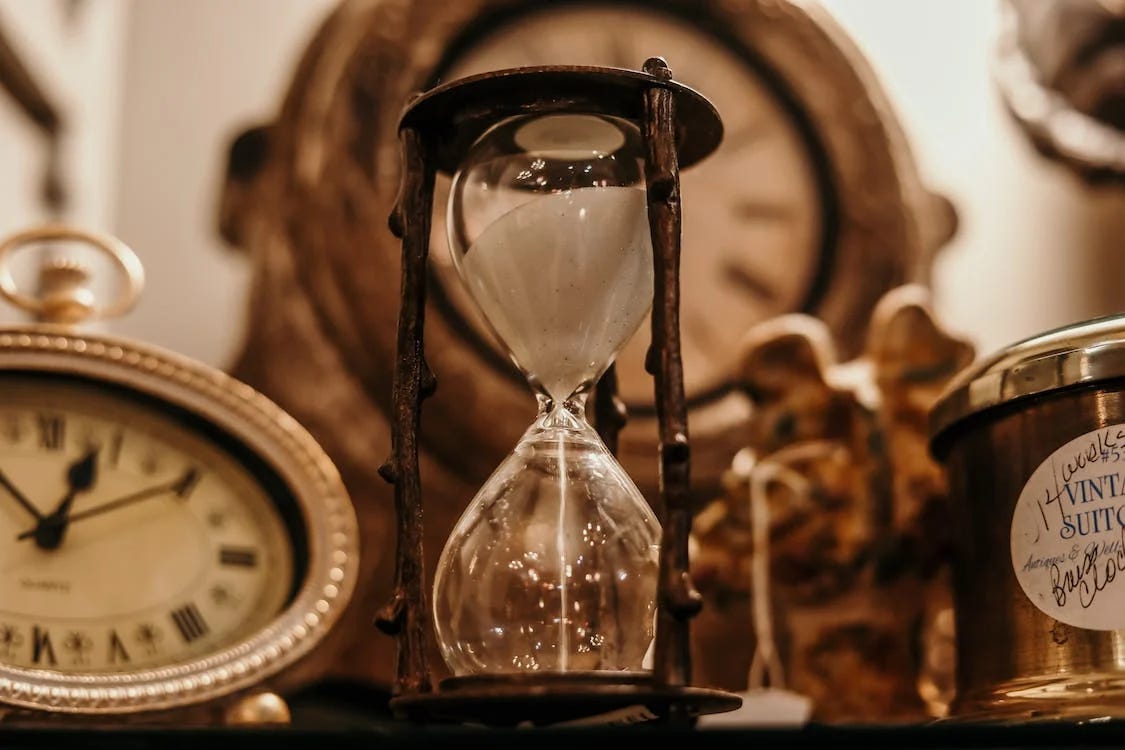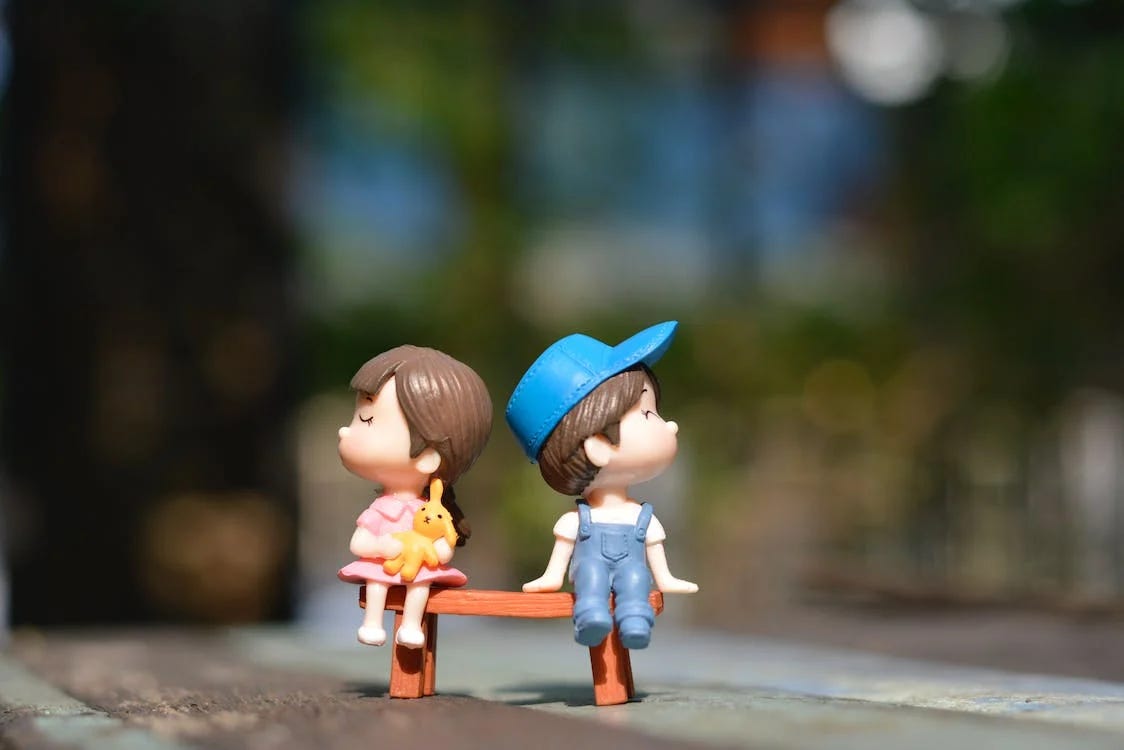
This book is a little gay 🏳️🌈 and I didn’t realize that until well into the novel but I loved it nonetheless because who doesn’t love a little rainbow, wrist flop, caramel-macchiato-speed-walked-from-Starbucks to listen to during terrible morning commutes? (But believe me, the LGBTQ+ flare LaCour shares is tasteful and beautifully human).
The voice actress? Jorjeana Marie is amazing. Fabulous. Captured the nuanced emotions of Marin from when she was happy and in high school to the fucking mountain she emotionally climbed to get to college and the present day.
You can literally hear how the trauma post high school and into college chokes Marin’s voice and deadens what was once so lively and upbeat a teenager.
Because this book is about loss. With the big “L” in every aspect of Marin’s life and it doesn’t seem like there is any way to make it better.
But the thing about grief and healing? It takes time. Only time can scab over a broken heart and only time can heal something we’ve broken beyond repair, be it love, loss, relationships, or identity.

Time Heals

Marin is one traumatic event from becoming an extreme recluse. I mean, she’s already a recluse and orphaned and alone, but she’s still somewhat manageable. She’s still young. Just out of high school and going to a liberal arts college so she has some feathers glued on and she’s still trying to fly.
The beauty of this short novella is that she, whether she recognizes it in herself or not, is healing. Despite her traumas, despite the hurt that she’s inflicted on herself and that others have inflicted on her, she is healing.
It doesn’t feel real and it doesn’t feel right, after the deaths she’s experienced and the love that she’s lost, but that’s the sad, scarring truth we all face as we march along with time: time will march side by side with us and give us the poultices we need to survive.
The pain we endure, the sadness, the overall turmoil that is life. As bad as it feels in the moment, it becomes something we survive and become better for.
And despite all the shit that Marin faces (cus hoo boy she faces A LOT), at the end. It doesn’t feel that hopeless.
At the end, we feel like maybe, just maybe there is a light at the end of the tunnel.
And if Marin can find that, then maybe so can we :)
We Aren’t Who We Say We Are

The Japanese say that we all have 3 faces: the first face we show to the world; the second face we show to our friends and loved ones; the third face we never show to anyone.
We all have identities we want to share with the world, perceived appearances that we want strangers to acknowledge and think, in a broad, blanket kind of way: this person is cool.
That’s our shell, the cocoon we try to use as armor to shield ourselves from pointed sarcasm or cruel tones. It’s not really us, and for the people who can bare their soul like that to a cruel and unforgiving world 24/7 has my praise and my sincerest apologies.
In truth, we are always hiding something. It might be something small or insignificant, white lies we tape over our mouths to make polite society bearable. Sometimes it’s bigger, facets of our personality, fabricated histories or love we can’t let go.
In Marin’s case, it’s the love of her dear, lovable grandpa. The love he had for her and the life they built together falls apart on the tenuous, sandy shoals of their relationship, throws everything into uncertainty because the man she thought her grandpa was, is all a lie.
A beautiful, heart-aching lie that she has to live with the consequences of.
Yet Love is Neverending
Grief and love are fickle things. Two sides of the same coin. An action and a belated reaction.
Marin is in so much pain it is numbable because of the love she’s received and can no longer understand. From her Grandpa, from her (ex???) best friend, from the people around her.
The scars that dig deeper than any reasonable thing an 18-year-old has to endure were stabbed through her because of love.
And the thing that heals that wound and slowly lifts her head up from its downward spiral, with the gentlest of touches,
is also love.
We bounce back and forth from the harsh reality of the present to the gilded beauty of the past and how beautiful it was for Marin. The hopes, the dreams, the possibility of it all.
We watch it come crashing down in the past as we are experiencing its repercussions in the present.
It’s heart-breaking to watch friends thick as thieves painfully reconcile because what happened it their recent past was too soon, too much, too new.
The pains of growing up, in the most catastrophic way possible, to a freshly minted adult: death.
Because this book is wholly about death. And those last few pages, the final words to fill the space?
That’s the rebirth.




